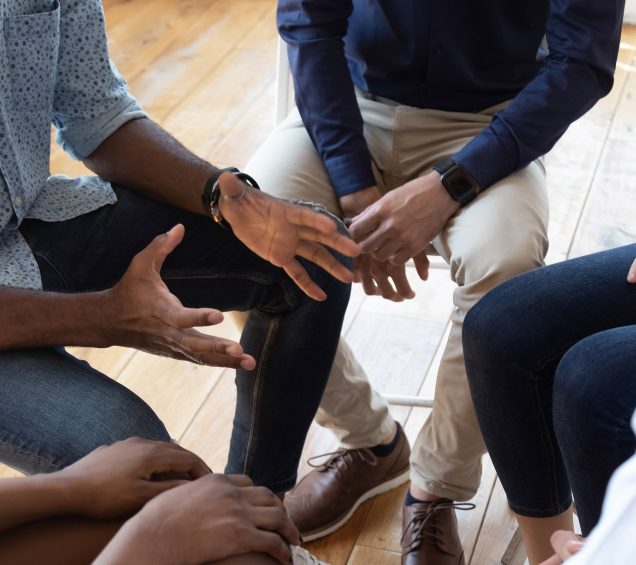Understanding Peers: A Critical Tool in Recovery
Whether you are just beginning your journey toward recovery or you have celebrated your achievements for years, peers play an integral role in keeping us honest, accountable and connected.
Peers are people like us who have been in recovery for a significant amount of time – usually one year or more. Peers are experienced, knowledgeable, empathetic, and have received specialized training. They can be clinicians, but that is usually not the case. Peers support individuals recovering from addiction through listening, shared feelings, and feedback.
There are several types of peer groups, which range from formal groups facilitated by a trained leader to very informal meetings among individuals.
- Formal peer groups, such as first responder peer focus groups, are usually led by a trained, experienced person. They are designed to occur for a specified period of time and are a free form type of discussion group focusing on various topics. These groups can be intense, in that the feelings and emotions discussed can cut “close to the bone”. Formal peer groups can also engender confrontation when members challenge each other concerning their perceptions and behaviors. Such confrontation must be regulated by the peer leader so that they remain civil and are handled in a loving, constructive manner.
- Semi-formal peer groups are led by a person who has a significant period of time in recovery and have a prescribed form and agenda. Alcoholics Anonymous and other 12-step groups are the most common type of semi-formal peer groups.
- Informal peer groups occur when a group of recovering people are together in an informal gathering. These groups usually are conducted without a leader, but one person may take that role if group members agree. Again, any constructive criticism must be done in a mature and non-judgmental way. For those in treatment, conversations in patient lounges are examples of this type of peer group.
- One-on-one peer activity occurs when individuals in recovery talks about sobriety and their life with another more experienced person in recovery, for example, a person talking to a sponsor. These meetings are usually informal and can take place anywhere.
Take the next step:
Start with an online form
-
Caron in Pennsylvania
1-800-854-6023 -
Caron in Florida
1-800-221-6500 -
Breakthrough at Caron
1-800-213-7834

